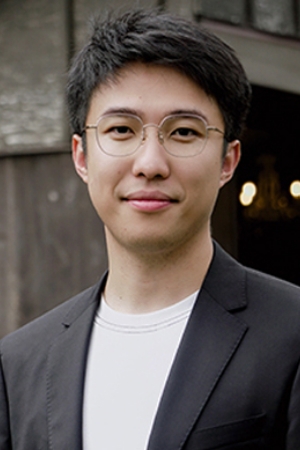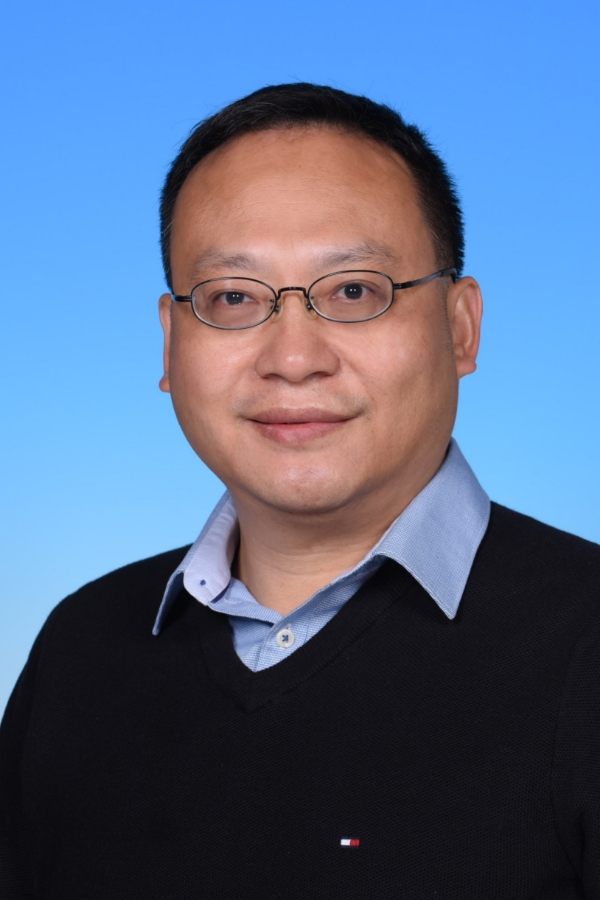In partnership with the NYU Graduate School of Arts and Science (GSAS) and the NYU Department of Sociology, NYU Shanghai invites applications from exceptional students for PhD study and research in Sociology.
Participating students will be enrolled in the NYU GSAS Sociology PhD program, complete their coursework at the NYU Department of Sociology in New York, and then transition to a full-time residence at NYU Shanghai where they will undertake doctoral research under the supervision of NYU Shanghai faculty.
Highlights of the Program
- NYU degree upon graduation
- Graduate coursework at the NYU Department of Sociology in New York
- Research opportunities with and close mentorship by NYU Shanghai faculty
- Access to the vast resources of NYU GSAS and NYU Department of Sociology
- A cutting-edge research environment at NYU Shanghai, including the Center for Applied Social and Economic Research -- a thriving community of PhD candidates, post-doctoral fellows, and research associates, featuring activities such as a regular program of seminars and visiting academics, and connections with other universities within and outside China
- Financial aid through the NYU Shanghai Doctoral Fellowship, including tuition, fees, and an annual stipend
- Additional benefits exclusive to the NYU Shanghai program, including international health insurance and travel funds
Supervising Faculty

Yilin Chiang
Sociology of Education, Social Stratification, Sociology of Family, Elites, Chinese Societies, Taiwan

Angran Li
Social Stratification and Mobility, Sociology of Education, Urban Sociology, Quantitative Research Methods

Jia Miao
Urban Sociology, Population Aging, Health Inequality, Survey Methods, Drug Abuse and HIV/AIDS Risks

Xiaogang Wu
Education, Inequality and Social Mobility, Survey Research and Quantitative Methods, Urban Sociology, Social Demography, Chinese Society
Recent Publications by NYU Shanghai Faculty
Yilin Chiang
- Chiang, Yi-Lin and Hyunjoon Park. 2023. “Three Decades of Educational Differentials in Attitude toward Divorce in Taiwan, 1985-2015.” Asian Population Studies 19(1): 22–39.
- Chiang, Yi-Lin. 2022. Study Gods: How the New Chinese Elite Prepare for Global Competition. Princeton, NJ: Princeton University Press.
Sangsoo Lee
- Lee, Sangsoo, and Jaesung Choi. 2023. "Gendered trends and patterns of attitudes toward remarriage among the divorced in South Korea." Population Research and Policy Review 41(1): 11. doi: 10.1007/s11113-023-09760-8
- Lee, Sangsoo, and Myoung-Jin Lee. 2023. "Religious homogamy and marital satisfaction in South Korea: Exploring variations across religious groups." Journal for the Scientific Study of Religion (online first). doi: 10.1111/jssr.12861
- Lee, Sangsoo, and Youngshin Lim. 2022. "The gendered playing field: Family socioeconomic status and national gender inequality in adolescents' out-of-school physical activity." Social Science & Medicine 305: 115062. doi: 10.1016/j.socscimed.2022.115062
- Lee, Sangsoo, and Hyunjoon Park. 2021. "Trends and educational variation in the association between spouses' marital histories in South Korea, 1993-2017." Demographic Research 45: 857-870. doi: 10.4054/DemRes.2021.45.27
Jia Miao
- Miao, Jia, and Xiaogang Wu. 2022. Social Consequences of Homeownership: Evidence from the Home Ownership Scheme in Hong Kong. Social Forces. DOI: 10.1093/sf/soac011.
- Miao, Jia, Xiaogang Wu, and Donglin Zeng. 2022. Promoting Ageing in Place in Hong Kong: Neighbourhood Social Environment and Depression among Older Adults. Journal of Asian Public Policy. 1-18. DOI: 10.1080/17516234.2022.2040087.
- Miao, Jia, Donglin Zeng, and Zhilei Shi. 2021. Can neighborhoods protect residents from mental distress during the COVID-19 pandemic? Evidence from Wuhan, Chinese Sociological Review 53(1): 27-54. DOI: 10.1080/21620555.2020.1820860.
- Miao, Jia, and Xiaogang Wu. 2021. “Subjective well-being of Chinese elderly: A comparative analysis among urban China, Hong Kong, and Taiwan.” Aging and Society, 41(3): 686-707. DOI:10.1017/S0144686X19001272
- Miao, Jia, and Xiaogang Wu. 2019. “Neighborhood, social cohesion, and the elderly’s depression in Shanghai.” Social Science & Medicine 229: 134–143. DOI: 10.1016/j.socscimed.2018.08.022.
- Miao, Jia*. 2017. “Birth weight, family socioeconomic status and cognitive skills among Chinese adolescents.” Chinese Sociological Review 49(4): 362–381
- Miao, Jia*, and Xiaogang Wu. 2016. “Urbanization, socioeconomic status and health disparity in China.” Health & Places 42: 87–95
Xiaogang Wu
- Chen, Y., Wu, X., Hu, A., He, G., & Ju, G. (2021). Social prediction: a new research paradigm based on machine learning. The Journal of Chinese Sociology, 8(1), 1-21.
- Hu, A., Wu, X., & Chen, T. (2021). Changing subjective wellbeing across the college life: survey evidence from China. Chinese Sociological Review, 1-21.
- Kan, M. Y., He, G., & Wu, X. (2021). Satisfaction with Family Status and Housework Participation in Modern China. In Chinese Families: Tradition, Modernisation, and Change. Emerald Publishing Limited.
- Miao, J., & Wu, X. (2021). Subjective wellbeing of Chinese elderly: a comparative analysis among Hong Kong, Urban China and Taiwan. Ageing & Society, 41(3), 686-707.
- Wu, X., Li, X., Lu, Y., & Hout, M. (2021). Two tales of one City: unequal vulnerability and resilience to COVID-19 by socioeconomic status in Wuhan, China. Research in Social Stratification and Mobility, 72, 100584.
- Xu, D., & Wu, X. (2021). From political power to personal wealth: Privatization and elite opportunity in post-reform China. Journal of Contemporary China, 1-21.
- Zeng, D., Wu, X., & Zhang, Z. (2021). Residential and industrial enclaves and labor market outcomes among migrant workers in Shenzhen, China. Journal of Ethnic and Migration Studies, 1-23.
- Bai, X., Li, Z., Chen, J., Liu, C., & Wu, X. (2020). Socioeconomic inequalities in mental distress and life satisfaction among older Chinese men and women: The role of family functioning. Health & social care in the community, 28(4), 1270-1281.
- Hu, A., Kao, G., & Wu, X. (2020). Can greater reliance on test scores ameliorate the association between family background and access to post-collegiate education? Survey evidence from the Beijing College Students Panel survey. Social Science Research, 88, 102425.
- Chen, Wei, Xiaogang Wu, and Jia Miao* (corresponding author). 2019. “Housing and subjective class identification in urban China.” Chinese Sociological Review 51(3): 221–250
- Hu, Anning and Xiaogang Wu 2019. "Science or Liberal Arts? Family Background, Cultural Capital, and College Major Choice in China" British Journal of Sociology 70 (1):190-213
- Miao, Jia, Xiaogang Wu, Xiulin Sun. 2019. “Neighborhood, social cohesion, and the Elderly's depression in Shanghai” Social Science & Medicine 229:134-143
- Miao, Jia*, and Xiaogang Wu. 2019. “Subjective well-being of Chinese elderly: A comparative analysis among urban China, Hong Kong, and Taiwan.” Aging and Society. 1-22.
- Wu, Xiaogang 2019. “Inequality and Social Stratification in Post-socialist China." Annual Review of Sociology 45: 363-382
- He, Guangye, Xiaogang Wu. 2017. "Marketization, Occupational Segregation, and Gender Earnings Inequality in Urban China." Social Science Research 65:99-111
- Zhang, Zhuoni and Xiaogang Wu. 2017. "Occupational Segregation and Earnings Inequality: Rural Migrants and Local Workers in Urban China." Social Science Research 61:57-74
- Wu, Xiaogang and Xi Song. 2014. "Ethnic Stratification amid China’s Economic Transition: Evidence from the Xinjiang Uyghur Autonomous Region." Social Science Research 44:158-172
Selected Faculty Features
“Scholars Convene for 2024 ISA-RC28 Conference on Life Course and Social Inequality” (Xiaogang Wu)
“Does Higher Education Guarantee Higher Pay? Not For All” (Xiaogang Wu)
“New Collaboration Advances Child Education and Development Research in China” (Xiaogang Wu)
"Social Science Research for a Better Society" (Xiaogang Wu, CASER)
"NYU Shanghai CASER Organizes Child Development Workshop with UPenn" (Xiaogang Wu, Jia Miao)
"NYU Shanghai, SHU and HKUST(GZ) Launch Ambitious Collaboration on Urban Research" (Xiaogang Wu)
"NYU Shanghai Professor Inducted into Sociological Research Association" (Xiaogang Wu)
"How Are Neighborhood Organizations Helping Residents During the Shanghai Lockdown?" (Jia Miao)
"How Does Homeownership Affect One’s Life? Sociologists Study Its Social Consequences" (Xiaogang Wu, Jia Miao)
"A Researcher's Journey Home" (Xiaogang Wu)
"NYU Shanghai Hosts International Chinese Sociological Association’s First Conference in China" (Xiaogang Wu)
"The Neighborhoods Behind Wuhan's Recovery" (Jia Miao)
"Leading Scholar to Direct New Social Science Research Center at NYU Shanghai" (Xiaogang Wu)
"NYU Shanghai Launches New Sociology PhD" (Xiaogang Wu, Jia Miao)
Program Structure
Students complete the PhD degree requirements set by the NYU Department of Sociology in accordance with the academic policies of NYU GSAS. Each student will develop an individualized course plan in consultation with the Director of Graduate Study at the NYU Department of Sociology and the student’s NYU Shanghai faculty advisor. A typical sequence of study is as follows:
in Shanghai
border
Begin program with funded research rotation up to 3 months preceding first Fall semester. Become familiarized with NYU Shanghai and faculty and lay a foundation for future doctoral study.
(Fall and Spring)
in New York
border
Complete PhD coursework at theDepartment of Sociology alongside other NYU PhD students.
in Shanghai
border
Return to Shanghai for second funded research rotation to solidify relationships with NYU Shanghai faculty and make further progress in research.
and Beyond
in Shanghai
border
Under supervision of NYU Shanghai faculty advisor, pursue dissertation research and continue coursework. Depending on each student’s individualized course of study, return visits to New York may also occur. Complete all required examinations and progress evaluations, both oral and written, leading up to submission and defense of doctoral thesis.
To learn more about the NYU Sociology PhD program degree requirements, please visit this page.
Current Students
| Name | Research Areas |
| Xin Di | Inequality, Economic Sociology, Social Networks and Community |
| Zhi Li | Social Inequality, Networks and Organizations, Life Course, Computational Social Science |
| Marco Laghi | Education, Stratification, Population, Development |
| Conor McCutcheon | Social Stratification, Education, Elite Formation, Interdisciplinary Research |
Application Process and Dates
Submit applications through the NYU GSAS Application portal. Select the Sociology PhD as your program of interest, and then indicate your preference for NYU Shanghai by marking the appropriate checkbox when prompted. Applicants will be evaluated by a joint admissions committee made up of New York and Shanghai faculty. Application requirements are set by the NYU Department of Sociology, and are the same for all NYU PhD applicants regardless of campus preference. However, candidates are encouraged elaborate on their specific interest in the NYU Shanghai program and faculty in their application and personal statements.
For admission in Fall 2026, the application deadline is December 15, 2025.
Contact Us
Interested students are welcome to contact Vivien Du, PhD Program Manager, at shanghai.phd@nyu.edu with any inquiries or to request more information.

